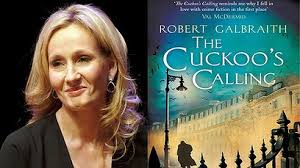Review: ‘The Paying Guests’ by Sarah Waters
December 8, 2014
I recently experienced a thrill I’d not known for quite some time. Nothing salacious here, I hasten to add, merely the fact of ‘discovering’ an author one hasn’t come across before. Isn’t it a joy to find oneself uplifted by the simple mechanism of words set down on paper? Sarah Waters’ book initially had that effect on me. Her prose and mode of expression soon struck a chord, not perhaps immediately but rather more gradually as one might lower oneself bit by bit into a warming bath and it wasn’t long before I found myself wanting to read the work, not so much for its plot, but more for the pleasure of her literary company. Unfortunately however, it wasn’t to last and the bath eventually went cold.
I found Sarah Waters by way of an article in the Review section of my regular Saturday newspaper along with a number of other autumn releases. The Paying Guests is not her first novel, far from it, and she is already well-known for Tipping the Velvet and The Little Stranger, but here was a chance for her to introduce herself. The book is of an intimidating length, a fact initially disguised from me by the fact that I read it on Kindle. But despite its size, the subject matter strikes me as rather narrow. Excuse the odd analogy but it’s a bit like ManU playing 4-5-1 away from home in the Champions League – a packed midfield and no real attacking potential. Such matches invariably end in defeat or at best, a dull draw. So it was with the book.
“…it wasn’t long before I found myself wanting to read the work, not so much for its plot, but more for the pleasure of her literary company.”
It focuses, almost exclusively, on the relationship between two young women, Frances and Lilian. The opening, as I’ve suggested, is extremely enjoyable and gives us a real insight as to character, both protagonists being finely drawn. They then embark on a lesbian love affair (risk warning here – some of these scenes are graphically detailed). Or do they? And it was this on/off, shall we/shan’t we phase that I thought unnecessarily prolonged and frustrating. This is not an uncommon problem in novels. I’ve experienced it in my own. In Bird of the Nile I felt the need to shorten the middle section by 10,000 words – an awful lot you might think but it improved things no end. I venture to suggest that The Paying Guests would benefit from the same treatment – and don’t tell me ‘you can’t possibly do that!’ because I’ve done it myself.
There is also no sub-plot. The narrative is expressed solely through the eyes of Frances but this in itself should not preclude a wider canvas. The book is set in 1922, an era which is of immense interest and is one of the reasons I chose to read it. There is a hint or two of the politics of the time (Frances’ former lover, Christina, has links with the women’s movement for instance) and I would have liked to have seen this developed further. But alas it was not to be and we are left with what becomes the ever more sordid love affair.
Then, halfway through the piece, a crime is committed. No spoiler here since we are told as much on the flyleaf of the printed version. This is just as well as it re-engages our interest but in an entirely different way. Now it’s no longer the prose which draws us forward – that’s become rather tepid – but we are compelled to read on to see how this plays out. I’m not going to disclose the details but it’s bound to have an effect on the relationship between our two lovers. What is different is their desperate desire to conceal their affair in a way we might find hard to understand today. In 1922 of course such things were scandalous if not actually illegal.
As to the ending, this is neither surprising nor entirely predictable. There is a small twist in the appearance of a deus ex machina in the form of an unexpected witness at the inevitable trial. His dramatic intervention seems to save the accused – and also the book, because without it there can be no solution to the predicament Frances and Lilian find themselves in. And so how do our lovers react? The answer, I’m afraid, is ultimately very disappointing.
N.E.David
Filed under: Written & Spoken Word
Tagged with: book review



Comments